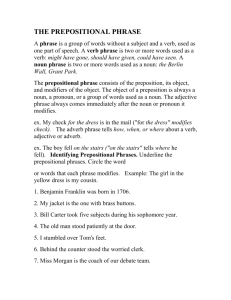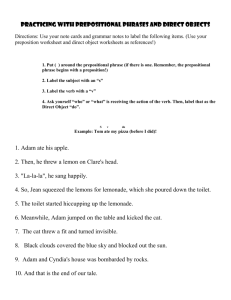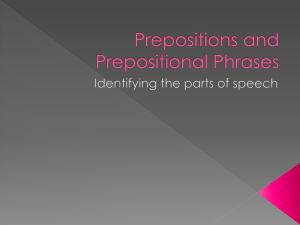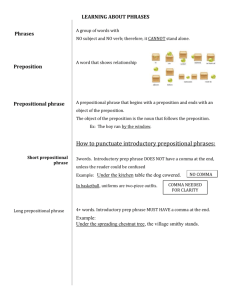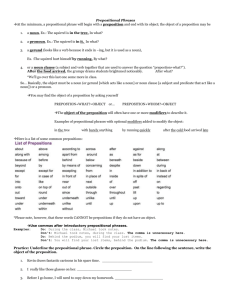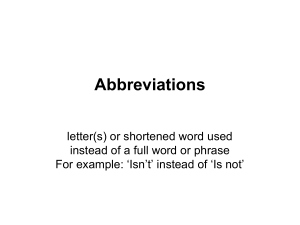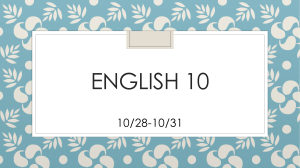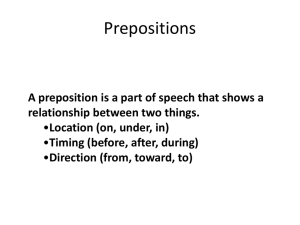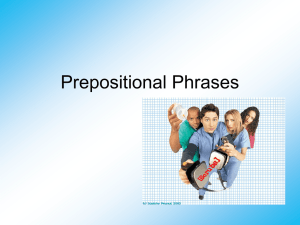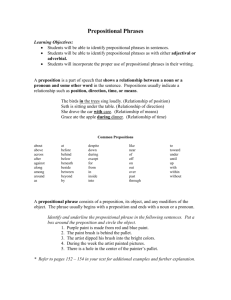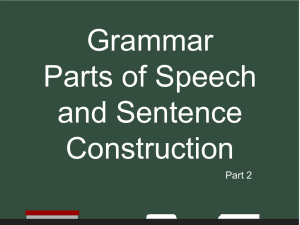Prepositional Phrases Worksheet: Grammar Practice
advertisement
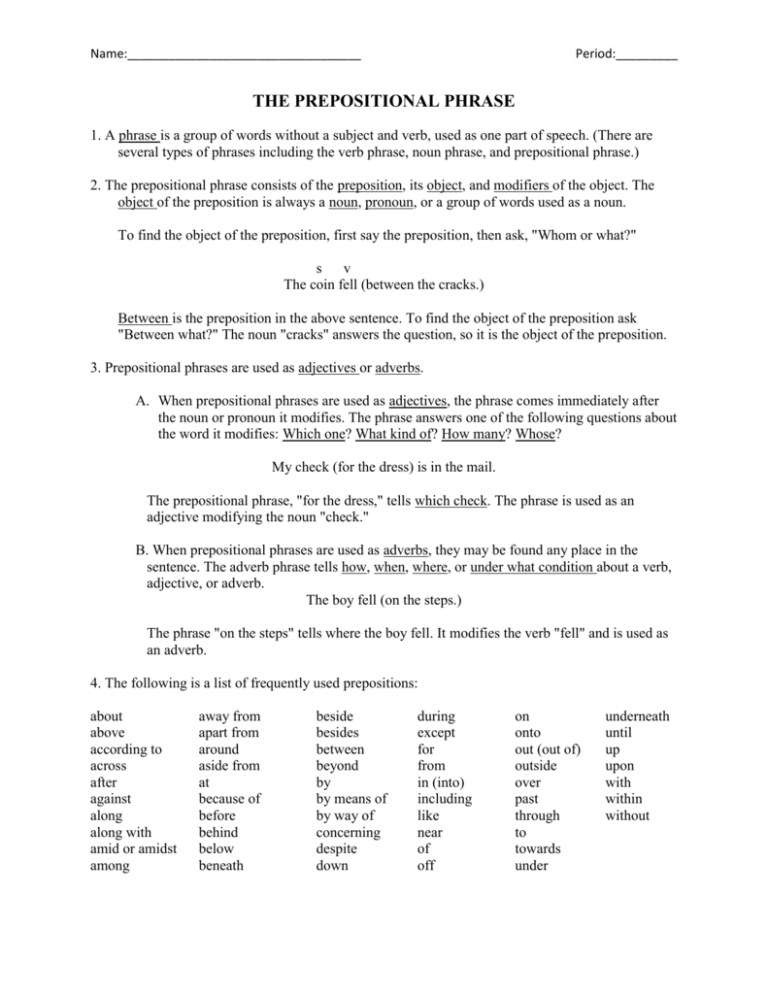
Name:__________________________________ Period:_________ THE PREPOSITIONAL PHRASE 1. A phrase is a group of words without a subject and verb, used as one part of speech. (There are several types of phrases including the verb phrase, noun phrase, and prepositional phrase.) 2. The prepositional phrase consists of the preposition, its object, and modifiers of the object. The object of the preposition is always a noun, pronoun, or a group of words used as a noun. To find the object of the preposition, first say the preposition, then ask, "Whom or what?" s v The coin fell (between the cracks.) Between is the preposition in the above sentence. To find the object of the preposition ask "Between what?" The noun "cracks" answers the question, so it is the object of the preposition. 3. Prepositional phrases are used as adjectives or adverbs. A. When prepositional phrases are used as adjectives, the phrase comes immediately after the noun or pronoun it modifies. The phrase answers one of the following questions about the word it modifies: Which one? What kind of? How many? Whose? My check (for the dress) is in the mail. The prepositional phrase, "for the dress," tells which check. The phrase is used as an adjective modifying the noun "check." B. When prepositional phrases are used as adverbs, they may be found any place in the sentence. The adverb phrase tells how, when, where, or under what condition about a verb, adjective, or adverb. The boy fell (on the steps.) The phrase "on the steps" tells where the boy fell. It modifies the verb "fell" and is used as an adverb. 4. The following is a list of frequently used prepositions: about above according to across after against along along with amid or amidst among away from apart from around aside from at because of before behind below beneath beside besides between beyond by by means of by way of concerning despite down during except for from in (into) including like near of off on onto out (out of) outside over past through to towards under underneath until up upon with within without Name:__________________________________ Period:_________ Directions: Identify all the prepositional phrases in the following sentences. 1. After the movie the group of teenagers went to McDonalds for a burger. 2. Without sugar the blueberries were too sour for the dinner guests. 3. Sally worked from midnight to noon on her science project. 4. Over the river and through the woods to grandfather’s house we go. 5. He ate three boxes of popcorn with butter during the movie. 6. Despite his fear of water Jack saved the drowning puppy. 7. Janet took her lunch with her to the seminar. 8. At the Country Fair the child with the freckles won the talent contest. 9. For breakfast she likes bananas with strawberries. 10. Down the dark alley the cat chased a rat with long whiskers. 11. The police searched throughout the apartment complex for the escaped criminal. 12. During the summer Gordie fishes under the large oak tree beside Silver Creek. 13. By noon Jimmy decided a nap on the hammock would be nice. 14. Geese live in flocks while cattle live among herds. 15. Around the world music brings together people of all nationalities. 16. He likes movies about war; she prefers movies with a romantic theme. 17. Away from home for the first time Mary wrote numerous letters to her family. 18. Mud squished beneath her feet as Ann walked through the woods during a rainstorm. 19. The sculptures above the entrance (was, were) designed by a nineteenth century artist. 20. Inside the auditorium a group of dancers (was, were) practicing. Note: Be certain you don’t confuse the object of the preposition with the subject. Doing so can result in subject/verb agreement problems. Choose the correct verb in sentences 19 and 20 above.
